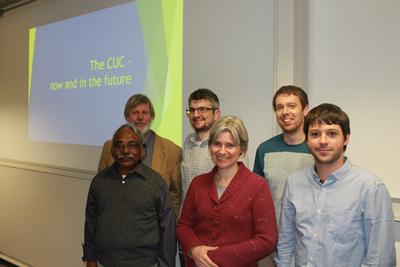Research into how new types of crops could help feed the world

Biological scientists and other researchers at the University of Southampton are coming together to investigate whether crops not widely grown for food could help feed the world.
Many academics believe major challenges lie ahead in feeding the world’s population. Climate change, for example, could dramatically change agriculture as droughts or floods affect land currently used for farming, destroying conventional crops and leading to famines.

Lecturer in Ecology and Evolution, Dr Mark Chapman has re-launched the University of Southampton’s Centre for Underutilised Crops (CUC) bringing together researchers from several disciplines with a wide range of interests including sustainable agriculture, ecosystem services, climate change, health and social development and infrastructure and economic development. A kick-off event has encouraged the academics to make connections and highlighted opportunities for future interdisciplinary research.
“This is a very topical subject at present,” explains Mark. “It is estimated that 90 percent of the world’s calorific intake is derived from just 15 crops, we urgently need to find alternatives to plants that cannot cope with our changing climate.” The CUC will look at viable alternative crops that may be drought-resistant or able to grow in poor soils and have the potential to be developed as new sources of food or animal feed. One example is the winged bean, a versatile Asian climbing legume where the whole of the plant can be eaten including its leaves, pods, seeds and roots.
The University’s pioneering CUC was first established in the 1980s but the original members have now retired or moved on to other areas of research.
